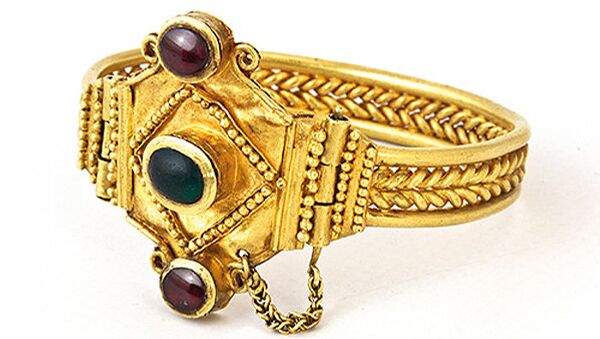MOSCOW, March 27 (RIA Novosti) - A number of Crimean archaeological artifacts currently on loan to a museum in Amsterdam must be returned to their home museums at the conclusion of the exhibit, a Russian official said Thursday.
On Sunday, media reports indicated the Dutch museum, in consultation with the country's foreign ministry, was considering sending the artifacts to the Ukrainian Ministry of Culture in Kiev, instead of the museums that lent them.
Mikhail Shvydkoi, the special representative of the Russian president on international cultural cooperation, said the items should be returned to the museums in Crimea, which rejoined Russia last week after having been undemocratically gifted to Ukraine by Soviet leaders 60 years ago.
"I can't really say what the legal process on this is today because there are a lot of different variations, and there may be several processes for returning these items," Shvydkoi said, emphasizing the artifacts should be returned to Crimea as they are part of the cultural heritage of the region.
Ukraine's Ministry of Culture said Thursday the items will first be shipped to Kiev, as the ministry handled their loan and they belong to Ukraine, adding that it remained unclear if the artifacts would then be returned to Crimea.
The exhibition entitled "Crimea: Gold and Secrets of the Black Sea" was opened in the Allard Pierson Museum in Amsterdam in February and runs until May 18. A collection of archeological finds from five Crimean museums are on display, including gold artifacts, a ceremonial helmet and valuable stones.
The artifacts were produced by the Scythians, nomadic steppe people noted for their prized elaborate gold artwork that inhabited much of present-day Eastern Europe in the 7th to 2nd century BC.
Earlier reports that Ukraine was considering trading its extensive Scythian gold collection in Kiev for an IMF bailout package were denied by the head of the country's Museum of Historical Treasures, Lyudmila Strokov. She added, however, that more than 20 pieces from the country's collection of Scythian artifacts were also sent abroad along with the items from Crimea.
The people of Crimea, a predominantly Russian-speaking region, voted overwhelmingly to reunify with Russia two weeks ago after seceding from Ukraine amid rising worries about ultranationalist rhetoric from the country's new leadership that unconstitutionally came to power last month.

